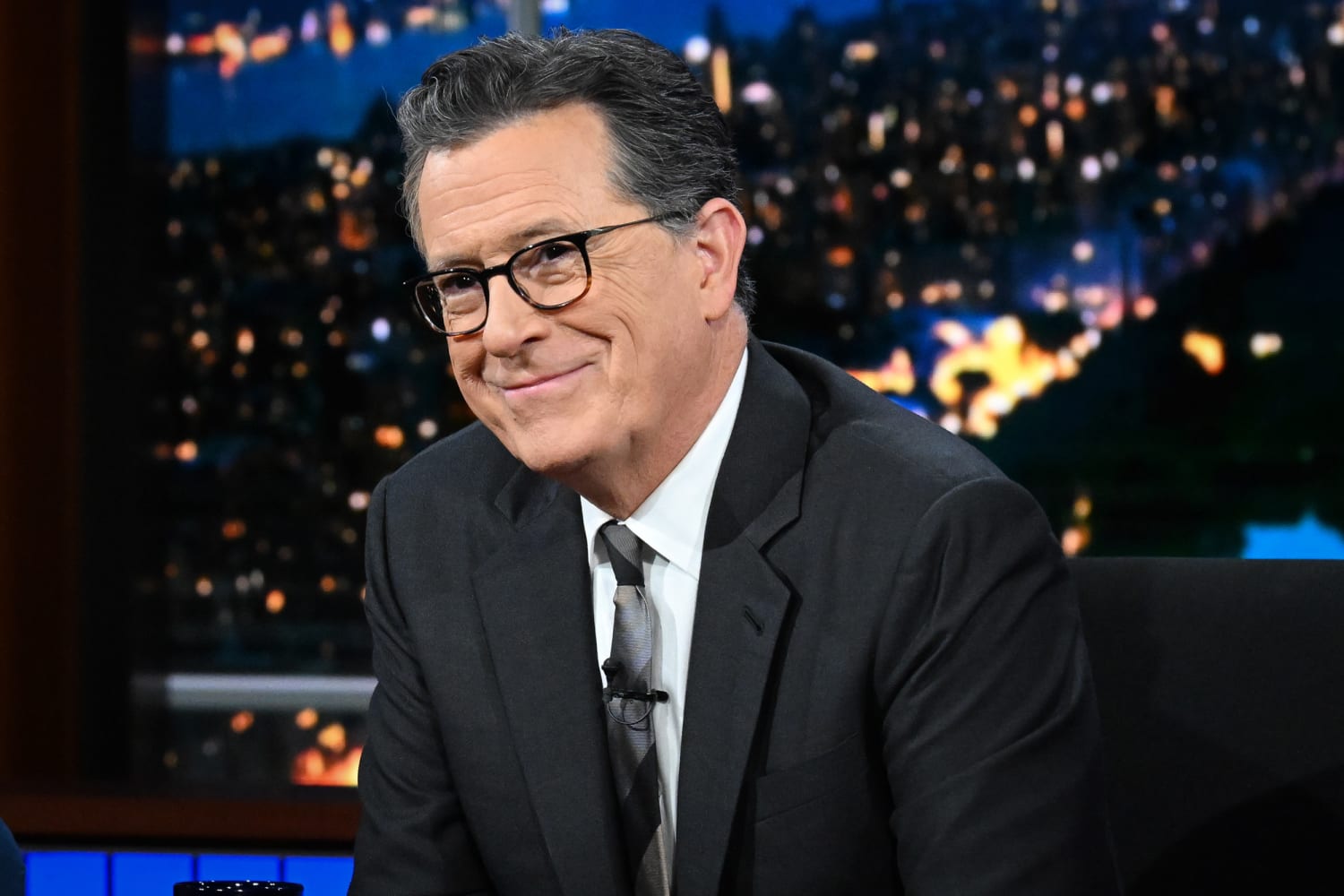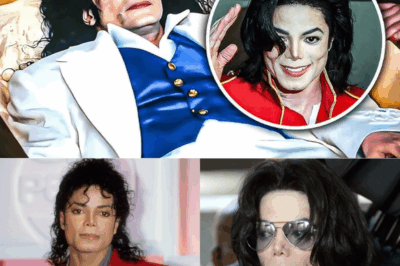The End of an Era? CBS’s Announcement on The Late Show with Stephen Colbert Sparks Widespread Speculation and Fan Concerns
In the fast-paced world of television entertainment, few shows have managed to carve out a lasting place in viewers’ hearts quite like The Late Show with Stephen Colbert.
As one of the most prominent late-night talk shows on American television, it has become a staple for millions of viewers seeking comedy, political commentary, and celebrity interviews.
Recently, however, the show’s future has come under intense scrutiny following a series of official statements from CBS that have left fans and industry insiders alike questioning what lies ahead.
CBS’s Official Statement: “Nothing Personal” or Something More?
In an official statement issued by CBS, the network insisted that their decision to conclude The Late Show with Stephen Colbert in 2026 was purely a business matter, emphasizing that it was “nothing personal.”

The network’s representatives maintained that the decision was driven by strategic shifts, budget considerations, and a desire to refresh their programming lineup.
CBS executives assured the public that Colbert’s departure was not a reflection of his performance or popularity but rather a standard part of network programming cycles.
However, despite these reassurances, the timing and tone of CBS’s announcement have sparked a wave of skepticism among viewers and industry observers.
Many have taken to social media platforms like Twitter, Reddit, and TikTok to express their doubts about the purported reasons behind the show’s conclusion.
The phrase “nothing personal” has become a rallying cry for fans who feel that there may be more beneath the surface.
The Internet’s Doubts: Are Budget Cuts the Real Reason?
The skepticism surrounding CBS’s official explanation stems from a broader context of industry trends and internal rumors.
The entertainment industry has been experiencing significant upheaval over the past few years, with many networks and streaming platforms reevaluating their programming budgets and strategic priorities.
In some cases, this has led to the cancellation of long-running shows, layoffs, and restructuring efforts aimed at cutting costs.
Fans and media analysts have pointed out that CBS’s claim of “nothing personal” seems inconsistent with the timing of the announcement, especially considering the show’s consistent ratings and popularity.
The Late Show with Stephen Colbert has maintained a strong viewership, often outperforming competitors in its time slot.
This has led many to speculate that the true motivation behind the show’s ending may be financial rather than performance-related.
Indeed, rumors suggest that CBS might be looking to allocate resources elsewhere—perhaps investing more heavily in streaming content, new programming formats, or other entertainment ventures.

Such strategic shifts are common in the modern media landscape, where traditional television networks are increasingly competing with digital platforms for audience attention and advertising dollars.
The Role of Budget Cuts in Network Decisions
Budget cuts have become a common theme across the television industry, especially as traditional revenue streams decline and production costs rise.
For late-night talk shows, which rely heavily on high-profile guests, live audiences, and elaborate production setups, maintaining profitability can be challenging.
In recent years, some networks have opted to reduce budgets for certain shows or streamline production processes to maximize profitability.
When CBS announced that The Late Show with Stephen Colbert would end in 2026, many industry insiders speculated that financial considerations played a significant role.
The phrase “budget cuts” has been frequently used in media reports and social media discussions as a shorthand explanation for the decision.
However, critics argue that this explanation oversimplifies the complex factors involved in programming decisions.
They suggest that behind-the-scenes negotiations, contractual obligations, and strategic planning all influence whether a show continues or ends.
Jon Batiste’s Departure and Its Impact
Adding fuel to the fire, Colbert’s longtime bandleader and Grammy-winning musician Jon Batiste recently made headlines with remarks that seemed to challenge the official narrative.
Batiste, who has been an integral part of The Late Show’s musical segments and overall atmosphere since joining the show, publicly expressed his surprise and disappointment over the news of the show’s impending conclusion.
Batiste’s comments have resonated deeply with fans, many of whom see him as a symbol of the show’s vibrancy and cultural relevance.
His departure from the show, which was announced around the same time as the network’s decision, has led to widespread speculation about whether internal issues, creative differences, or financial considerations influenced the decision.
Some industry analysts interpret Batiste’s candid remarks as a subtle critique of CBS’s handling of the show’s future.
His comments have been viewed by many as an indication that there may be more complex, less transparent reasons behind the network’s decision to end the show.
The Future of Late-Night Television

The announcement that The Late Show with Stephen Colbert will wrap up in 2026 marks a significant moment in the history of late-night television.
For decades, late-night shows have been a cornerstone of American entertainment, serving as a platform for comedy, political discourse, and celebrity culture.
The impending end of Colbert’s tenure raises questions about the future landscape of late-night programming.
Will CBS replace the show with a new format or personality? Will streaming platforms step in to fill the gap left by traditional network late-night shows? Or will viewers see a broader shift away from conventional late-night formats altogether?
Industry insiders suggest that CBS and other networks are actively exploring new formats that could appeal to a changing audience.
With younger viewers increasingly consuming content on digital platforms, traditional late-night shows face mounting challenges in maintaining relevance and profitability.
The Broader Industry Context
The decision to end The Late Show with Stephen Colbert is not isolated.
Across the industry, many long-standing programs have faced similar fates amid shifting viewer habits and economic pressures.
For example, other late-night staples like The Tonight Show and Jimmy Kimmel Live! have also undergone changes, with hosts shifting roles or shows rebranding.
Moreover, streaming giants like Netflix, Hulu, and Amazon Prime have invested heavily in original content, aiming to capture audiences that once tuned in to traditional television.
This has prompted networks to reconsider their programming strategies, sometimes leading to cancellations or retooling of existing shows.
The broader industry trend points toward a more fragmented media landscape, where traditional television no longer holds a monopoly on entertainment.
Instead, content creators and networks are experimenting with new formats, shorter episodes, interactive content, and digital-first approaches to engage audiences.
Public Reaction and Fan Sentiment
The news of The Late Show’s impending conclusion has elicited a strong emotional response from fans worldwide.
Social media platforms have been flooded with messages of nostalgia, disappointment, and concern about the future of late-night comedy.
Many fans have expressed their appreciation for Colbert’s sharp wit, insightful commentary, and the show’s unique blend of humor and politics.
Others have voiced fears that the end of the show signals a broader decline in the quality and diversity of late-night programming.
Some fans have even started petitions and campaigns urging CBS to reconsider or to give the show an extended run beyond 2026.
Others speculate about who might succeed Colbert as the host or whether a new show will emerge to fill the void.
Looking Ahead: What’s Next for CBS and Colbert?

While CBS has announced that The Late Show with Stephen Colbert will end in 2026, the network has also indicated that they are committed to maintaining a strong late-night presence with new programming initiatives.
Whether these will involve a new host, a revamped format, or entirely different content remains to be seen.
For Stephen Colbert, the end of his late-night tenure marks the conclusion of a significant chapter in his career.
Colbert, known for his sharp political satire and engaging interviews, has become a defining figure in contemporary comedy.
Industry insiders speculate that he may pursue other projects, including streaming specials, podcast ventures, or even political commentary.
Meanwhile, fans and industry analysts will be watching closely to see how CBS navigates this transition and how the landscape of late-night television evolves in the coming years.
A Moment of Reflection and Change
The announcement that The Late Show with Stephen Colbert will conclude in 2026 has sent shockwaves through the entertainment industry and among loyal viewers.
While CBS insists that the decision is purely business-related and driven by strategic considerations, widespread skepticism suggests that the true reasons may be more complex.
As the industry continues to adapt to new technologies, changing viewer habits, and economic pressures, the future of late-night television remains uncertain.
However, one thing is clear: Stephen Colbert’s impact on comedy and political discourse has been profound, and his departure marks the end of an era for many.
Fans, critics, and industry insiders alike will be watching closely as CBS charts its next move and as the late-night landscape prepares for whatever comes next.
In the meantime, the legacy of Colbert’s Late Show will undoubtedly endure as a symbol of a transformative period in American entertainment.
News
She’s finally spoken out. The real reason behind Harris Faulkner’s shocking disappearance from Fox News is not what anyone expected.
She’s finally spoken out. The real reason behind Harris Faulkner’s shocking disappearance from Fox News is not what anyone expected….
After 30 years by her side, Judge Judy’s legendary bailiff Byrd has been dropped from her new show. The reason will stun you.
After 30 years by her side, Judge Judy’s legendary bailiff Byrd has been dropped from her new show. The reason will stun…
The final secret is out. What they found inside Michael Jackson’s grave defies all explanation and changes everything we thought we knew. You have to see it to believe it.
The final secret is out. What they found inside Michael Jackson’s grave defies all explanation and changes everything we thought…
The secret is OUT. Willie Geist and Sheinelle Jones’s reunion is NOT what NBC is telling you. The behind-the-scenes footage reveals a moment so explosive, it was almost cut from the broadcast.
The secret is OUT. Willie Geist and Sheinelle Jones’s reunion is NOT what NBC is telling you. The behind-the-scenes footage…
BREAKING: Ofcom flooded with complaints after Rylan’s controversial This Morning segment. Click to see the moment that caused outrage.
BREAKING: Ofcom flooded with complaints after Rylan’s controversial This Morning segment. Click to see the moment that caused outrage. In…
Emily Compagno Reveals Shocking Dual Identity: From Courtroom Warrior to NFL Cheerleader – The Untold Story Behind the Scandal
Emily Compagno Reveals Shocking Dual Identity: From Courtroom Warrior to NFL Cheerleader – The Untold Story Behind the Scandal In…
End of content
No more pages to load












